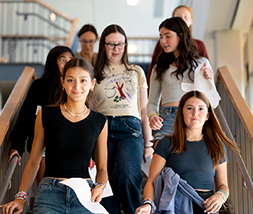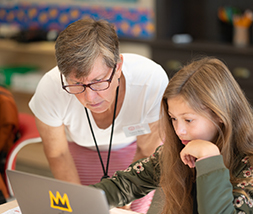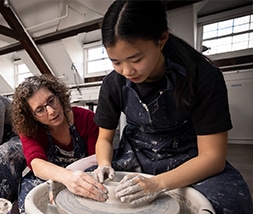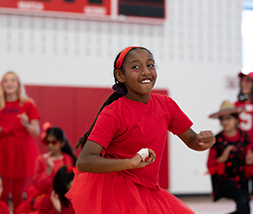Leadership, Administrative Council
Julian Braxton
Director of Community and Inclusion
B.A., Political Science
Pace University
Ed.M., Education Administration, Planning, and Social Policy
Harvard University
Director of Community and Inclusion Julian Braxton’s passion for community has been a throughline over the course of his life. As a student at the Manhattan Center for Science and Mathematics, he served as editor of the school paper, part of the school’s Black Student Union and interned for Harlem Congressman Charles Rangel. While working for a news service run by teenagers—Children’s Express—he learned the value that listening to and sharing people’s stories has to build community. His love of storytelling was further fueled in college, where he served covering politics as a news editor for Pace University’s school paper and was president of the Political Activities Club.
While in college, Julian took a job teaching public school students in New York City about the constitution through role play, an opportunity that gave him experience as a teacher—he found he loved it. After college, he received a teaching fellowship and full-time position at Sewickley Academy, Pittsburgh’s oldest coeducational independent school, where he stayed until he went on to complete his graduate studies at the Harvard School of Education under the direction of sociologist Dr. Sarah Lawrence-Lightfoot, his academic advisor.
Julian arrived at Winsor in 1999. Initially encouraged by a chance introduction to then Associate Director of Winsor Diane Bezan, Julian has served in both faculty and administrative roles—all dedicated to teaching history, fostering community, and promoting inclusion—ever since. In 2016, Julian was awarded the Virginia Wing Outstanding Teacher Award, the highest faculty honor given at Winsor. In 2022, he was named the inaugural holder of the Bezan Chair for Community and Inclusion, named for the colleague who became both a close friend and mentor during his early years at the school.
Julian’s passion for teaching and storytelling combine to inform his role as a history teacher at Winsor. He recognizes that in sharing stories, he is bringing the past to life, helping his students build connections across disciplines and time periods—for Julian, this is the very heart of history, equity, and inclusion. He describes his courses as “action-oriented,” and his students as “agents of change.” He hopes to instill in them that “while we so often hear that young people are the future, in fact, they are the present, and can make change now in really important ways.”






